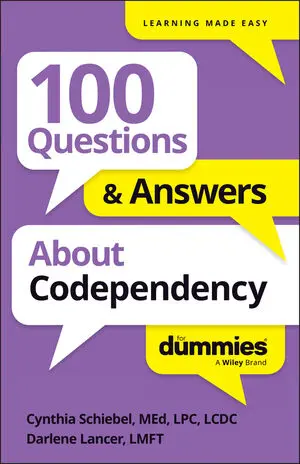If you’re nonattached, rather than control others, you’re compassionate and encourage them. Rather than manipulate others to like you, you’re authentic. You have no need to argue or persuade others but are curious and respectful of differing points of view. You honor their need for space or silence and meanwhile enjoy your time alone or with someone else.
This may sound impossible, but the pay‐off is rewarding. Nonattachment as used here differs from that in Buddhism. It involves three concepts:
Having appropriate boundaries
Accepting reality
Being in the present, not the past or future
Nonattachment is a way of separating the unhealthy emotional glue that keeps you fused in a codependent relationship. It involves letting go of your expectations and entanglements with other peoples’ problems and affairs, of reacting to things they say and do, and of obsessing and worrying about things. You mind your own business. It doesn’t take away your feelings and concern but channels them in a healthy manner. In practice, it’s more compassionate and loving than codependent attachment.
Nonattachment doesn’t mean neglecting family responsibilities or leaving someone. Physical proximity is irrelevant to nonattachment, although physical space or separation may be useful as a means of centering yourself, but this is not what detaching means. In fact, some divorced couples are more emotionally attached and reactive to one another than most married couples. Someone living far away can push your buttons in a phone call so that you dwell on the conversation for days.
Nor is nonattachment the same as being aloof, disinterested, emotionally shut down, or ignoring someone. When first practicing nonattachment, people often turn off their feelings or use walls of silence to refrain from codependent behavior, but with persistence, understanding, and compassion, they’re able to let go with love.






